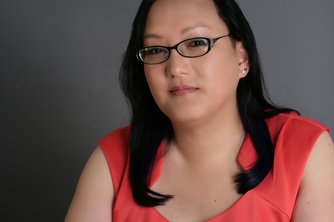Meet the Experts of UNTRUE: A conversation with Mischa Lin
When I began writing Untrue: Why Nearly Everything We Believe About Women, Lust, and Infidelity Is Wrong and How the New Science Can Set Us Free, the focus was primarily on female infidelity and popular mis/representations of female sexuality. But in the course of doing research and discussing the project with friends, I came to realize that I also needed to explore another topic: polyamory. Many signs suggested that the practice was growing. And several experts had observed that anecdotal data indicated this growth was being driven primarily by women, making it a good subject to discuss in the book. One of the first people I reached out to in my effort to educate myself about the modern poly scene was Mischa Lin. Mischa is one of the cofounders of Open Love NY, a leading organization run for and by the polyamorous community. Over the course of a fascinating interview, she walked me through some of the history of modern polyamory, the current polyamorous landscape, and what the culture at large could learn from her community. As Mischa was quick to note, “nonmonogamy has been around since the beginning of time,” with examples throughout ancient societies like the Greeks. But what is new in modern polyamory is the introduction of ethics, agency, and consent norms in pursuing nonmonogamy that is “joyful and fulfilling” as monogamy. (Scholar Elisabeth Sheff places contemporary polyamory in the third wave of consensual nonmonogamy, which she traces back to 19th century transcendentalists.) People have found many different ways into this community. Mischa in our interview shared with me that she was in a monogamous marriage for many years prior to becoming polyamorous. The marriage ended after she made a gender transition and fell in love with another person who was married and living with an 'intentional family.' Mischa moved from Texas to New Jersey to be closer to them, although at the time they did not call it "polyamory”.
Her crucial epiphany following transitioning and entering this new type of relationship was, “We can create our own version of happiness for ourselves, without having to compare it someone’s idealized version of happiness.” This was a throughline of our conversation: polyamory as a way to explore and define pleasure, partnership, and love on one’s own terms—part of what Mischa described as an increasing “individuation” of society. And the appeal of these new norms for women is obvious. Traditional heterosexual relationships have often been foisted on women or entered into out of material necessity. It is also important to think about the ways relationships to self are affected by partners. Looked at from a certain vantage, Mischa argues we are all polyamorous, because we have a relationship with our partner(s) and a relationship with ourselves. The latter is often ignored or under engaged in heteronormative relationships. In what Mischa terms “toxic monogamy,” a person loses connection with their relationship with themselves, and I would argue women experience this effect especially acutely because we often find ourselves cast into constraining, ill-fitting molds by cultural expectations and social roles. The irony here is, as Mischa explained, that in our society monogamy and ethics are treated as synonymous. As an activist and member of the polyamorous community, she has worked hard to pushback against this assumption, “decoupling ethics from monogamy.” The key elements of successful polyamory are consent and agency, which allow people to be empowered and intentional in “creating an agreement that actually works” for them. As Mischa quips, “What defines poly is you!” I think we could all learn a thing or two from this embrace of curiosity, honesty, and openness with ourselves our partners and our communities.
